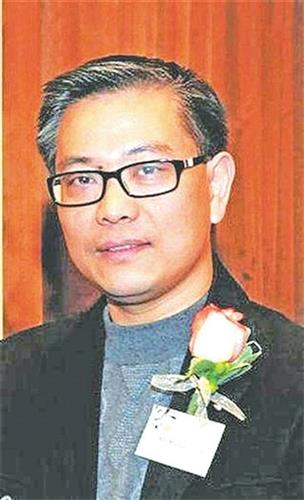


Decision not a setback of Chinese govt's efforts at repatriation: experts
A court in Canada Thursday has agreed to reconsider the refugee status of Michael Mo Yeung Ching, who is wanted by the Chinese government for alleged corruption.
Experts believe the case does not indicate a setback of China's operations in repatriating international fugitives.
A Federal Court judge in Winnipeg reviewed a 2014 decision of Canada's refugee protection department denying Ching's refugee status, saying the evidence was unclear.
The problem lies in the quality of the evidence on which the Refugee Protection Division relied on, which was "fuzzy and third-hand," according to the court decision sent to the Global Times by David Matas, a lawyer representing Ching.
It is likely that Ching will be given a new hearing at the Refugee Protection Division (of the Immigration and Refugee Board) for reconsideration of his claim [seeking refugee status], Andrew Baumberg, legal counsel of the Federal Court in Canada, told the Global Times in an email.
Ching was included in a list of 100 most-wanted people released by the Chinese government as part of its "Sky Net" operation in April. He is being sought for alleged embezzlement.
The operation comes on the heels of the 2014 Fox Hunt operation, which arrested 680 officials who fled overseas.
Huang Feng, director of the Institute for International Criminal Law at Beijing Normal University, told the Global Times that Ching sought refugee status to keep his permanent residency in Canada to increase the difficulty of having him repatriated.
Ching, 45, is the son of a former party chief in Hebei Province who was expelled from the Party in 2003 for corruption. Ching was accused of graft in the 1990s, but fled to Canada and started a business, and even obtained permanent residency in 1996, according to the Xinhua News Agency.
Most fugitives suspected of corruption in countries like the US and Canada, which have no extradition treaties with China, were deported as illegal immigrants, said Zhuang Deshui, expert at Peking University.
"But repatriation requires authorities to revoke Ching's permanent residency first," Huang said.
"The difficulties involved in Ching's case are quite normal in repatriating fugitives, and we should seek other alternatives like freezing their assets or encouraging local Chinese people to report their misconduct to repatriate them," Zhuang said.
Notorious smuggling kingpin Lai Changxing was repatriated to China in 2011, 12 years after fleeing to Canada, after China reportedly agreed not to sentence him to death.
He was handed a life sentence for smuggling and bribery in 2012.
Ching's status in Canada is more stable since he is a permanent resident but Lai was only visiting, according to Huang.
Ching can still be extradited to China if both countries agree, though none of the fugitives have been extradited to China this way, Huang said.
Canadian authorities require a careful review of evidence of non-political crimes for extradition, Huang said.
China has signed extradition treaties with 39 countries, including France and Italy, and has signed mutual legal assistance agreements with 52 countries like the U.S., Canada and Australia as of 2014, according to the foreign ministry.
 Yunnan-Myanmar Road: The past and present
Yunnan-Myanmar Road: The past and present Campus belle of Xiamen University gets popular online
Campus belle of Xiamen University gets popular online Who says moms cannot be trendy and hot?
Who says moms cannot be trendy and hot? 10 Chinese female stars with most beautiful faces
10 Chinese female stars with most beautiful faces Stunning photos of China's fighter planes
Stunning photos of China's fighter planes Enteromorpha hits Qingdao coast
Enteromorpha hits Qingdao coast Eight fruits that defend men's health
Eight fruits that defend men's health  First batch of female combat pilots with duel degrees fly Flying Leopard
First batch of female combat pilots with duel degrees fly Flying Leopard Top 10 secrets of longevity
Top 10 secrets of longevity Distant district set to shine
Distant district set to shine The break fast club: Observing Ramadan in Xinjiang
The break fast club: Observing Ramadan in Xinjiang GDP figures offer credible economic reassurance
GDP figures offer credible economic reassurance Student LGBT groups struggle for approval from China’s university authorities
Student LGBT groups struggle for approval from China’s university authoritiesDay|Week